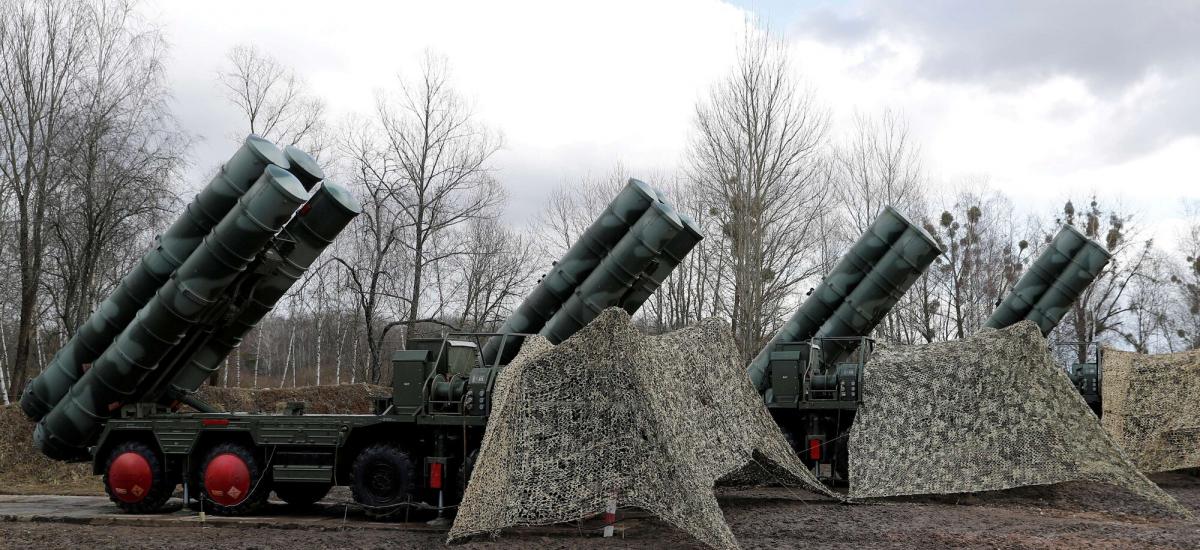Turkey fired a missile from its Black Sea coast on Friday in an area where the military was expected to test the Russian S-400 missile system, Reuters reported, citing a video it obtained.
The footage showed a narrow column of smoke rising high into the air above the coastal city of Sinop, Reuters said.
Turkey has issued notices to restrict air and sea traffic to allow for the tests. The notification were due to expire on Friday.
Turkey’s defence ministry refused to confirm or deny the missile tests.
State Department Spokesperson Morgan Ortagus, in a statement to Ahval, said that the U.S. is aware of the reports and the United States has expressed to the Government of Turkey, at the most senior levels, that “the acquisition of Russian military systems such as the S-400 is unacceptable.”
The United States has warned Turkey against activating the S-400 system for several years, which it took delivery of from Moscow last year despite the threat of sanctions.
Ortagus, in the same statement, said that “the US has been clear on our expectation that the S-400 system should not be operationalized. We have also been clear on the potential serious consequences for our security relationship if Turkey activates the system.”
The Trump administration has thus far proven hesitant to impose penalties on Turkey over the issue.
Chief Pentagon Spokesman Jonathan Rath Hoffman also released a statement responding Ahval’s inquiry, on the same subject, using almost exactly the same language as the State Department, but added that the S-400s “should not be activated.” Hoffman reminded that Turkey has already been suspended from the F-35 program and the S-400 continues to be a barrier to progress elsewhere in the bilateral relationship.” Pentagon said, “an operational S-400 system is not consistent with Turkey’s commitments as a U.S. and NATO Ally.”
State Department’s Ortagus, in the same statement, said, “If confirmed, we would condemn in the strongest terms the S-400 test missile launch as incompatible with Turkey’s responsibilities as a NATO Ally and strategic partner of the United States.”
If it is confirmed, firing the missiles would likely breach the Countering America’s Adversaries Through Sanctions Act (CAATSA), which targets those who do business with Russia’s defence sector.
On Saturday, U.S. lawmakers wrote to Secretary of State Mike Pompeo urging him to impose sanctions on Turkey following reports of the S-400 radars being used on Greek F-16 fighter jets.
The U.S. has repeatedly expressed concern that Turkey’s use of the Russian made system could jeopardise NATO’s operational security and reveal intel on its next-generation F-35 fighter jet programme.
Turkey and the U.S. are at loggerheads over several other regional issues including tensions with Greece in the eastern Mediterranean, and Turkish involvement in the Nagorno-Karabakh conflict.
Investors are concerned that an increased probability of sanctions will lead to more losses for the fragile Turkish lira and further destabilise the country’s economy. The lira traded down 0.3 percent at 7.528 per dollar on Friday, just off an all-time low reached last week of 7.9591 per dollar.







































admin in: How the Muslim Brotherhood betrayed Saudi Arabia?
Great article with insight ...
https://www.viagrapascherfr.com/achat-sildenafil-pfizer-tarif/ in: Cross-region cooperation between anti-terrorism agencies needed
Hello there, just became aware of your blog through Google, and found ...